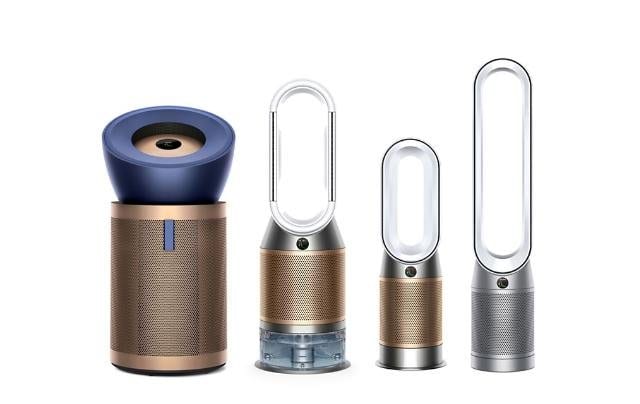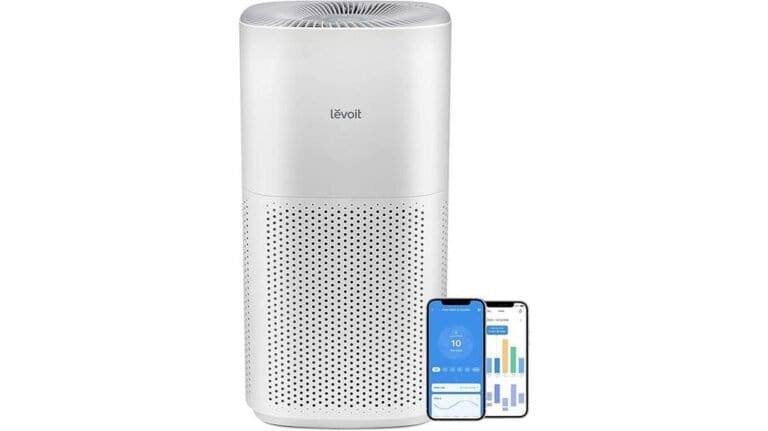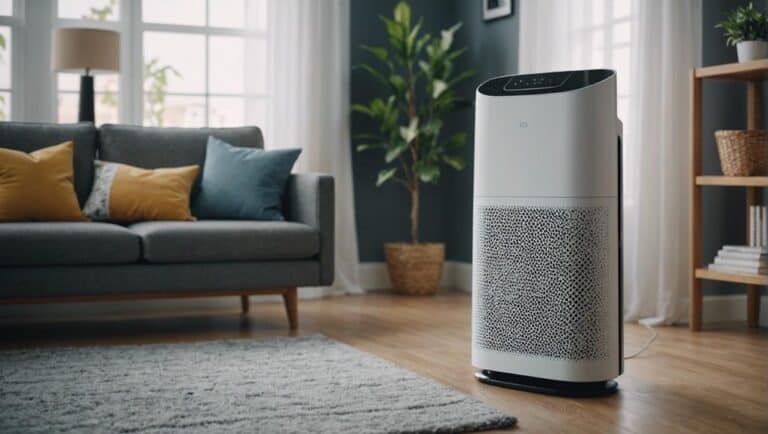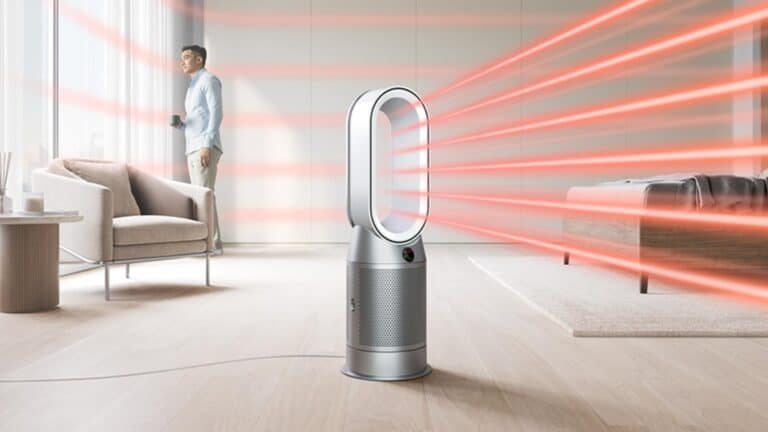Unmasking the Benefits: Assessing the Effectiveness of Dyson Air Purifiers for Asthma Relief
Asthma has plagued countless individuals around the world, causing difficulty in breathing and triggering various respiratory symptoms. Consequently, the demand for effective air purifiers that can alleviate these symptoms has soared.
Among the plethora of options available on the market, Dyson Air Purifiers have gained significant attention for their purported ability to combat asthma triggers and enhance indoor air quality. However, before investing in such a device, it is imperative to thoroughly examine and assess their effectiveness in providing relief from asthma symptoms.
In this article, we will delve into unmasking the benefits of Dyson Air Purifiers and evaluate their efficacy in alleviating asthma-related issues by analyzing scientific studies and reviewing customer testimonials. By shedding light on these factors, readers will be equipped with crucial information necessary to make an informed decision regarding their health needs.
Understanding Asthma: A Brief Overview of the Condition
Asthma is a chronic respiratory condition characterized by inflammation and narrowing of the airways, leading to difficulty in breathing. It affects millions of people worldwide and can manifest as episodes of wheezing, coughing, chest tightness, and shortness of breath. Triggers such as allergens (pollen, dust mites), respiratory infections, exercise, cold air, or certain medications can exacerbate symptoms.
How Does Asthma Impact Daily Life?
Living with asthma presents various challenges for individuals. The unpredictability of asthma attacks can disrupt daily activities and limit physical exertion. Moreover, sufferers may constantly worry about potential triggers in their environment that could lead to an asthma episode. Consequently, managing the condition often involves adopting precautionary measures like avoiding triggers and having quick-relief medications on hand.
The Role of Air Quality in Asthma Management
Air quality plays a vital role in mitigating asthma symptoms because particles present in the air can irritate the already sensitive airways. Poor indoor air quality due to common pollutants like pet dander, mold spores, tobacco smoke, or volatile organic compounds (VOCs) can worsen asthmatic symptoms. Therefore, using effective air purifiers has become an increasingly popular strategy for allergy-proofing homes and reducing airborne triggers that might aggravate asthmatic conditions.

The Relationship Between Air Quality and Asthma Symptoms
- People with asthma are especially sensitive to poor air quality, which can trigger their symptoms.
- Common triggers include pollution, smoke, dust mites, pet dander, and mold.
- Exposure to these triggers can lead to inflammation of the airways, causing wheezing, coughing, shortness of breath, and chest tightness in people with asthma.
- Studies have shown that improving indoor air quality can help reduce the frequency and severity of asthma symptoms.
- Dyson air purifiers use advanced filtration technology to capture allergens and pollutants from the air.
- These purifiers utilize a high-efficiency particulate arrestance (HEPA) filter that traps microscopic particles such as pollen, pet dander, dust mites, and mold spores.
- By removing these irritants from the air you breathe indoors, Dyson air purifiers may provide relief from asthma symptoms by reducing your exposure to triggers.

The Role of Air Purifiers in Asthma Management
Air purifiers play an essential role in managing asthma symptoms by removing pollutants and allergens from the air. These devices use filters to trap particles like dust, pollen, pet dander, and smoke, reducing their presence in the indoor environment. By minimizing exposure to these triggers, air purifiers can help alleviate asthma attacks and improve overall respiratory health.
Using a Dyson air purifier specifically designed for asthma relief offers several benefits. Its advanced filtration system captures 99. 97% of microscopic particles as small as 0. 3 microns, including common asthma triggers. With its strong airflow and multiple sensors, it continuously monitors the room’s air quality while adjusting its settings accordingly to maintain clean and pollutant-free conditions.
How Air Purifiers Complement Other Asthma Management Strategies
Air purifiers are not meant to replace other crucial aspects of asthma management but rather serve as a complement to existing strategies such as medication adherence and environmental control measures. While medications provide relief during acute attacks or prevent chronic symptoms, air purifiers work towards creating cleaner indoor environments that minimize exposure to triggers.
In addition to helping manage asthma symptoms at home or in the workplace, using an air purifier can reduce dependence on medication dosage for symptom control. This may lead to improved overall health outcomes for individuals with asthma by preventing long-term complications associated with prolonged medication use.
By incorporating a Dyson air purifier into your lifestyle alongside comprehensive asthma management techniques like trigger avoidance and proper medication usage prescribed by a healthcare professional, you can create an environment conducive to better respiratory health and potentially decrease reliance on medication alone.
Dyson Air Purifiers: Features and Functionality
Features and Functionality
- Dyson air purifiers are equipped with a high-efficiency particulate air (HEPA) filter that captures 99. 97% of allergens and pollutants as small as 0. 3 microns. This includes common asthma triggers such as dust, pollen, pet dander, mold spores, and even some bacteria.
- The 360° Glass HEPA filter in Dyson air purifiers uses borosilicate microfibers to trap harmful particles while maintaining strong airflow. It is easy to replace when needed and lasts for up to one year with proper maintenance.
- The Air Multiplier technology in Dyson air purifiers ensures efficient circulation of purified air throughout the room by projecting a powerful stream of clean air at a high velocity. This helps reach every corner of the space, providing comprehensive purification.
By combining its advanced filtration system with innovative design features like the 360° Glass HEPA filter and Air Multiplier technology, Dyson has created powerful yet user-friendly air purifiers that effectively reduce asthma triggers from indoor environments.
Evaluating the Effectiveness of Dyson Air Purifiers for Asthma Relief
Effectiveness of Dyson Air Purifiers for Asthma Relief
Dyson air purifiers have proven to be effective in providing relief from asthma symptoms.
- Advanced filtration system: The air purifiers are equipped with a highly efficient HEPA filter that effectively captures and removes allergens, pollutants, and other triggers known to worsen asthma. This helps improve indoor air quality and reduces the risk of asthma attacks.
- Continuous monitoring: Dyson’s smart technology allows the air purifiers to monitor and detect changes in air quality in real-time. It automatically adjusts its settings to maintain optimal levels, ensuring a constant flow of purified air throughout the room.
- Quiet operation: The air purifiers operate silently, allowing individuals with asthma to sleep peacefully without disturbances. This is particularly important as poor sleep can trigger or exacerbate asthma symptoms.
In conclusion, Dyson air purifiers provide an effective solution for people suffering from asthma by significantly reducing exposure to airborne triggers and maintaining clean indoor environments conducive to respiratory health.
Consumer Reviews and Feedback: Real-life Experiences with Dyson Air Purifiers
Real-life Experiences with Dyson Air Purifiers
Improved Breathing:
Users have reported significant improvements in their breathing after using the Dyson air purifier. Asthma sufferers, especially, have noticed a decrease in respiratory symptoms such as wheezing and coughing. The purifier’s ability to remove allergens like pollen and dust from the air has created a healthier indoor environment for many individuals.
Reduced Allergy Symptoms:
Dyson air purifiers proved effective in reducing allergy symptoms for users. By eliminating common triggers like pet dander and mold spores, these devices provided relief from sneezing, itching eyes, and nasal congestion associated with allergies. Customers appreciated the filter’s efficiency in capturing even microscopic particles that can be harmful to those sensitive to allergens.
Quieter than Expected:
In addition to their effectiveness at improving indoor air quality, Dyson air purifiers impressed users with how quiet they operated compared to other brands. Sleep was undisturbed by noisy fan sounds or vibrating components commonly found in other types of filters on the market.






